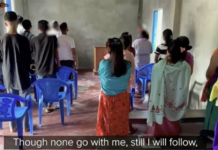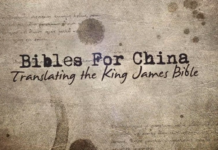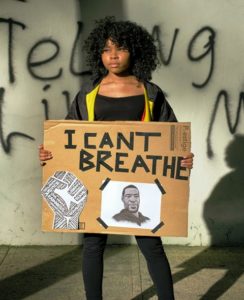
Photo by Obi Onyeador on Unsplash.com.
ORLANDO, FL (ANS) George Floyd’s horrifying death while pinned down by a white policeman has sparked global rage and anti-racism protests. Racial disparity is widespread and ominous. Can a racist’s heart be changed? Consider these powerful examples.
Unlikely frenemies
I will always remember Norton and Bo. Norton was a leader of the Georgia Black Student Movement in the 1970s. Bo was a racially prejudiced white Christian. Once during an Atlanta civil rights demonstration, Bo and some of his cronies beat Norton up. Animosity ran deep.
Later, in discussions with my roommate, Norton discovered personal faith in Jesus. As his faith took root and grew, his anger mellowed while his desire for social justice deepened. Meanwhile, Bo rejected his hypocrisy and began to live his faith with God in the driver’s seat. Three years after the beating, the two unexpectedly met again at a conference.
When Norton first spotted Bo, I could sense his discomfort. He related to me their backstory and his uncertainty about what to do. But over the week, the initial tension melted into friendship as they forgave each other, reconciled and treated each other like brothers.
At the end of the conference, it was astonishing to see them standing with their arms around each other’s shoulders. I can still envision that remarkable sight.
Klansman and Black activist
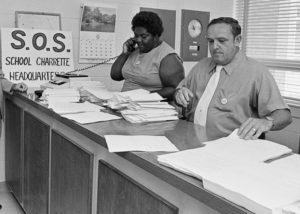
Photo: Jim Thornton, courtesy The Herald-Sun Collection, University of North Carolina at Chapel Hill Libraries.
C.P. Ellis, a Duke University maintenance worker, served as Grand Cyclops of the Durham, North Carolina, Ku Klux Klan. Ann Atwater was a local Black civil rights activist. Once, Atwater, knife in hand, had nearly killed the verbally abusive Ellis.
“I hated her guts,” admitted Ellis. “I hated him just as hard as he hated me,” Atwater affirmed.
In a curious twist, Ellis and Atwater co-chaired a ten-day community school desegregation forum. Ellis sought to thwart integration efforts, Atwater explained. But, she told NPR, “God had a hand on that…C.P. had a machine gun” that he displayed daily, but “I had my white Bible in my hand. So I told C.P. we would see whose God would be the strongest, my God or his God. I always said if they’d said something to me, I was going to knock the hell out of them with my Bible.”
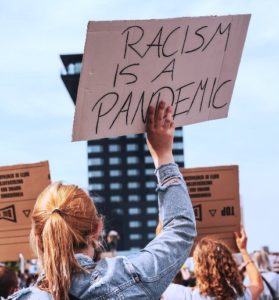
Photo by Dyana Wing Soon on Unsplash.com.
Softened hearts
Speaking with suffering children softened their animosity. Recalled Atwater, “Me and him cried at that time, and we began to melt down towards one another.”
At the final session, Ellis admitted, “Something has happened to me, and I think it’s for the best…. I used to think that Ann Atwater was the meanest black woman I’d ever seen in my life. … But, you know, her and I got together…..”
What fueled their change? Atwater wrote in the Durham Herald-Sun, “In church the preacher says that if you want to be like Jesus you must be ‘born again.’ That really is the only way I can describe it. Something came into our lives…. The blinders came off and we…saw how much we had in common. Then we couldn’t imagine not being friends.”
Forgiving friends
“But we couldn’t be friends without forgiving one another. …There is no future without forgiveness…our hate had to die. …C.P. showed me that people can learn to love. We really can be born again….”

Atwater maintained Ellis “changed from a Klansman to a Christian.” She believed a divine hand was at work, remained Ellis’ friend, and spoke at his funeral.
The Raleigh News and Observer noted that “the meetings transformed Ellis, who went on to renounce the Klan and become a labor organizer and an admirer of Martin Luther King Jr.” A 2019 movie, The Best of Enemies, told their inspiring story.
Radical change
Our nation and world are in chaotic times. Do unjust practices and policies need changing? Absolutely. But so do flawed human hearts, racism’s root cause. Faith-based heart change can actually be quite radical (from the Latin radix, or “root”). Social reform or individual reform, which is paramount? Realistic solutions to today’s crises are not either/or but both/and.
Copyright © 2020 Rusty Wright
This article first appeared on WashingtonExaminer.com
# # #
Editors: For access to these images and more, check here, here, here, here, and here.
** You may republish this or any of our ANS stories with attribution to the ASSIST News Service (www.assistnews.net). Please also tell your friends and colleagues that they can get a complimentary subscription to ANS by going to the website and signing up there.



